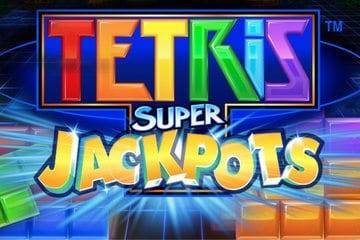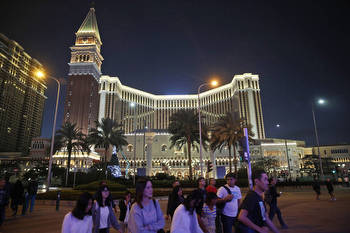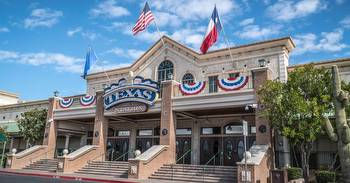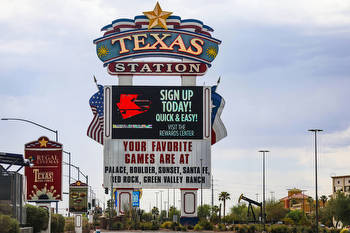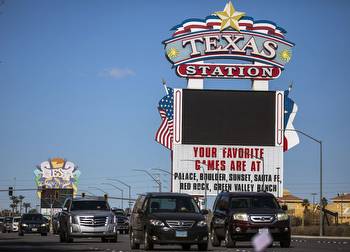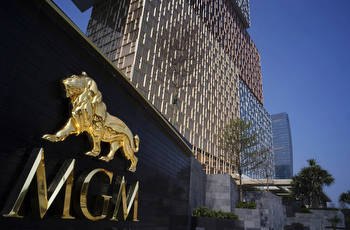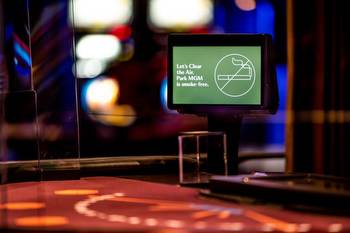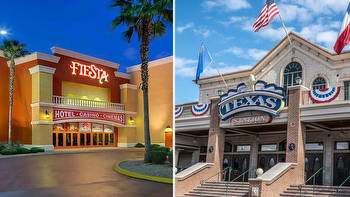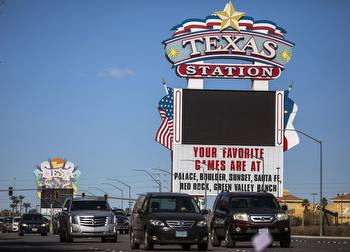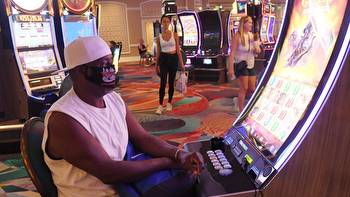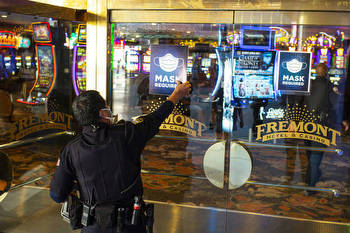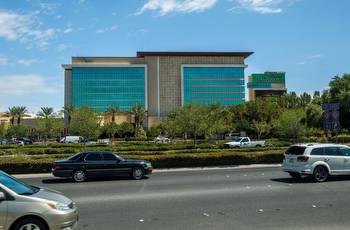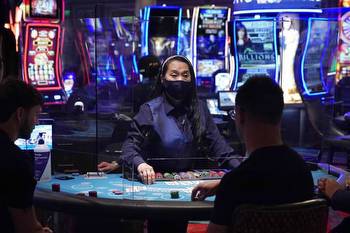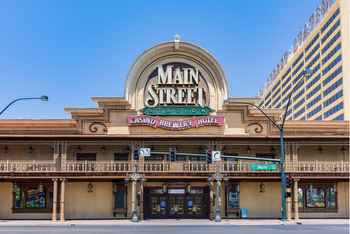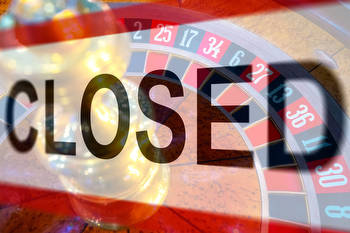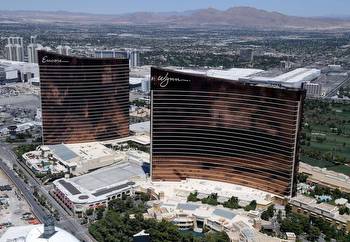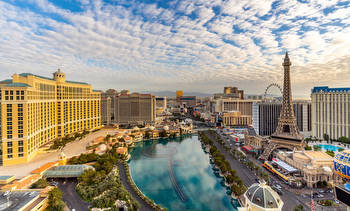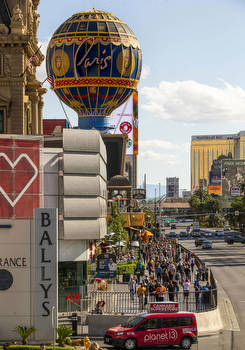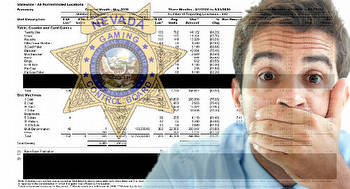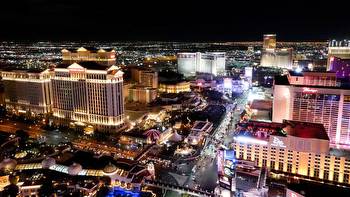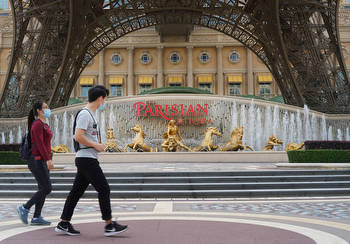Four years ago, Las Vegas’ casinos shut down for 78 days. The fallout was brutal
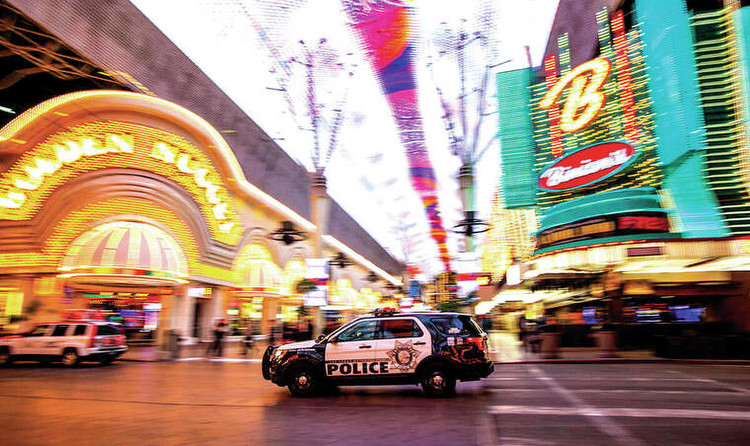
Four years ago few believed that Las Vegas’ casinos would be forced to close to minimize the impact of the COVID-19 virus that was rampaging worldwide.
But they did. And the fallout was brutal.
About a month after casinos in Macao were closed for 15 days to slow COVID’s spread, then-Gov. Steve Sisolak on March 17, 2020 ordered all casinos as well as restaurants, bars and other nonessential businesses in the state to close for 30 days.
“I remember the day of the closure and how striking that was,” said Virginia Valentine, president of the Nevada Resorts Association. “I also remember how focused the resort industry was on keeping employees and guests safe. It was a time of a lot of tough decisions.”
Brendan Bussmann, a gaming industry analyst with Las Vegas-based B Global, recalled the dark start of the shutdown.
“I still remember driving the Strip the next morning and there was nobody there and it either looked like we were occupied or that a bomb had gone off,” he said.
As a result of the 78-day closure, the Nevada Gaming Control Board estimated Nevada’s 219 major casinos lost $6.2 billion, a 25.2 percent decline from revenue generated a year earlier.
33.4 percent jobless rate
An estimated 26,140 people from a workforce of 162,066 lost their jobs and the unemployment rate soared to 33.4 percent. With demand for travel to Las Vegas lost, airlines canceled hundreds of flights.
While Sisolak’s allies praised him for taking decisive action, his critics assailed his shutting down the state’s largest industry. And when the governor gave the all-clear for casinos to reopen on June 4, 2020, most companies were ready.
On the Strip, Caesars Entertainment’s Flamingo, Caesars Palace and Harrah’s Las Vegas and MGM Resorts International’s Bellagio, MGM Grand and New York-New York were the first to reopen. They were followed by Wynn Las Vegas and Encore, and The Venetian and Palazzo, then owned by Las Vegas Sands Corp.
Permanent casualties
But other properties became permanent casualties.
Red Rock Resorts never reopened Texas Station and Fiesta Rancho in North Las Vegas, and Fiesta Henderson. Eventually, those properties would be sold and demolished for other uses.
Boyd Gaming Corp.’s Eastside Cannery never returned, and the company hasn’t said what will happen to the property. Boyd’s downtown Las Vegas Main Street Station was one of the last properties to reopen and Red Rock Resorts ended up selling the Palms to Southern California’s San Manuel Band of Mission Indians.
MGM survived the pandemic by selling the real estate beneath some of its resorts to real estate investment trusts.
It was widely believed by political pundits that Sisolak’s decision to shut down gaming was a factor in his defeat in the November 2022 gubernatorial race with current Gov. Joe Lombardo.
“I would say that I never expected to see, in my lifetime, Las Vegas Boulevard and the rest of Nevada gaming being closed,” said Kirk Hendrick, chairman of the Gaming Control Board, who was appointed by Lombardo after the shutdown. “Many of those businesses don’t even have locks on the doors. Some of them don’t even have doors so to drive down there — and I did that several times during the lockdown – it was a very surreal feeling to see a 24-7 town just shuttered.”
Record-breaking rebound
Since the 2020 closure, gaming revenue totals have roared back with three consecutive years of records over pre-COVID 2019 beginning in 2021. In 2023, Nevada casinos recorded $15.5 billion after a then-record $13.4 billion in 2021 and $14.8 billion in 2022.
Hendrick said continual revenue records show the state’s industry resiliency.
“If we learned anything from this it’s that Nevada proved once again how resilient it is after we went through one of the worst times that the country’s ever faced and Nevada came out of it just roaring over the last three years,” he said.
“You’ve seen the gaming numbers; they’ve been extremely impressive,” Hendrick said. “I think the country was just looking for a chance to come out of lockdown and have a good time. And what better place to do that than in Nevada.”
Valentine spoke of the city’s resilience.
“What I’ve experienced firsthand is how resilient, innovative and highly adaptive Nevada’s resort industry is under the most unimageable situations,” Valentine said.
“One of the biggest lessons from the pandemic was that despite virtual meetings and social gatherings online, people needed to be together in person,” she said. “Humans crave social interactions and shared experiences that create lasting memories. Las Vegas — with all we have to offer — really became an aspirational symbol of taking a trip with friends and family as a way to escape the pandemic. You just can’t recreate personal interactions at tradeshows or the energy of a sold-out concert virtually.”
It wasn’t just the resorts that learned from the crisis.
Daron Dorsey, executive director of the Association of Gaming Equipment Manufacturers, said slot machine and systems providers took the pause to increase efficiency.
“There’s no manual for this,” he said. “The one silver lining is that everybody got better at operating their businesses because they were forced to. They learned how to maintain a supplier and supply chain and procurement and how to operate those businesses on a global level.”
While several casino companies continued to pay their employees through the pandemic, unions took circumstances from the pandemic to the bargaining table and negotiated the best contracts in their history.
“The health and safety of employees and guests had always been a top priority, but now it was a whole different level,” Valentine said. “The resorts hired public health experts and implemented some of the most comprehensive and well-researched health and safety plans in the country.”
New attractions, events
Valentine said the city’s new attractions and events since the pandemic — Allegiant Stadium and the Sphere opening, hosting the first Super Bowl, the NFL draft, the first Formula One race, several new resort openings — convinced the public that Las Vegas is the go-to place to be.
“The pandemic was tough,” she said. “People needed something to look forward to, and we were it. The pent-up demand illustrated what Las Vegas means to millions of people around the world. Much credit should also be given to the addition of professional sports. It arrived at precisely the right moment and now Las Vegas is enjoying a new era as the sports and entertainment capital of the world.”







